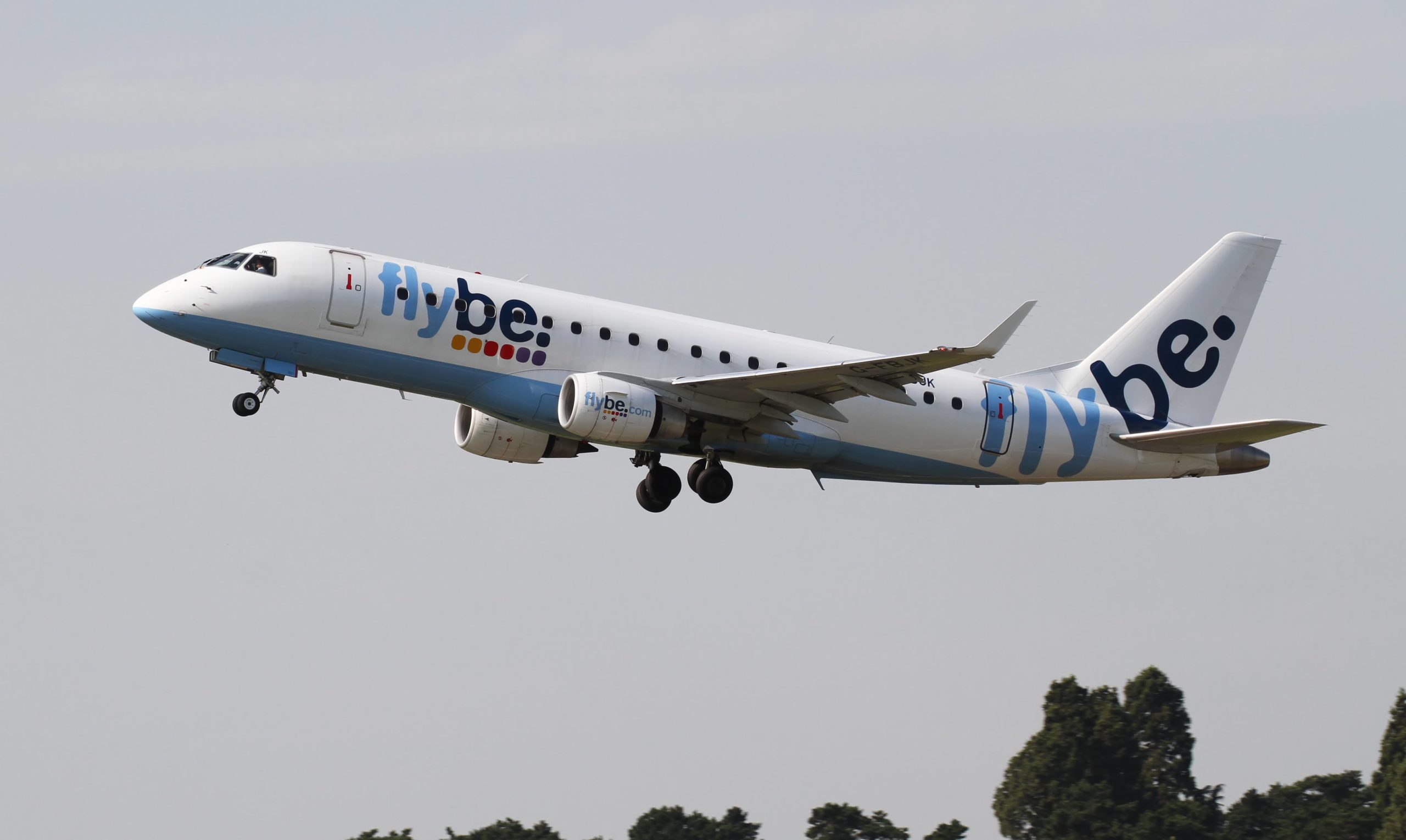
British airline Flybe, an early casualty to COVID-19, plans to return to the skies in 2021 after a new investment lifeline. As long as it can find airplanes, that is…
Flybe Plans 2021 Relaunch
The defunct carrier went under in March 2020, taking over 2,000 jobs with it. COVID-19 was a co-morbidity, not the sole cause of death, but certainly the final nail in the coffin for an airline that had been struggling for years over Brexit, currency volatility, and higher fuel costs.
Flybe’s assets, including its brand name, were sold to Thyme Opco, an entity linked to the same company that bailed out bailout Flybe in 2019 via Virgin Atlantic. Prior to the pandemic, the plan was to rebrand Flybe under the Virgin banner and create a feeder network for Virgin Atlantic.
Flybe will operate as a regional airline, with service to began as early as 2021. But there is a problem: the carrier currently has no fleet. Indeed, all that is left is the branding and office equipment. But in an era of surplus aircraft, leasing the right aircraft equipment is not an insurmountable burden, even on a short-term horizon.
There’s also another problem: unless EU and British lawmakers iron out their differences, British carriers may not be able to even serve EU destinations.
Trifle matters…
Heralding the relaunch, Simon Edel, a joint administrator, noted:
“The restart of this iconic brand, which was once Europe’s largest regional airline, will provide a potentially significant boost to aviation jobs, regional connectivity and local economies.”
A spokesperson from Thyme Opco told The Guardian:
“While we plan to start off smaller than before, we expect to create valuable airline industry jobs, restore essential regional connectivity in the UK and contribute to the recovery of a vital part of the country’s economy.”
CONCLUSION
There is that small matter of leasing or buying aircraft, but this is good news for the UK and good news for aviation. The old joke that if you want to make $1 million in the airline industry you must start with $1 billion rings as a cautionary tale, especially now. However, there will likely always be a need for air service to regional UK cities so some successor to Flybe was bound to spring up. Why not just call it Flybe?
Are you excited about a potential Flybe relaunch in 2021?
> Read More:How Nations Protect Their Airlines
image: Tony Hisgett / Wikimedia Commons




COVID wasn’t even a thing in Europe when FlyBe went under. And the aviation part of Brexit is already agreed between the UK and EU, so that’s not an issue in its resuscitation. So those two canards are laid to rest.
Finally, the principal reason it was unprofitable was nothing to do with Brexit (which wasn’t even a thing when it became unprofitable, and fuel costs were similar for FlyBe and other airlines which were profitable. Likewise currency volatility. No it was because it largely operated routes which aren’t profitable without Government subsidy, which is unlawful in both EU and UK law. If a route would be profitable, then it’s snapped up by EasyJet or Ryanair. Also, as it had no partnerships and couldn’t offer feed, the routes were even less attractive.
My dad is a ‘Gordon Ramsay’s Kitchen Nightmares’-like consultant for companies such as airlines and banks (i.e. he goes in, identifies the problem, then tells the CEO how to be a CEO), and he said that Flybe was the biggest wreck he’d seen in 20 years of doing this. I’ve flown on them several times – but he said the point to point operations just made no sense, and he reckoned (in October 2019) that they would not be a thing in 12 months as it was so uneconomical. For instance, launching five flights a day between Leeds/Bradford (LBA) and Dusseldorf (DUS), when Ryanair could not make the route work 3 years earlier with one flight per week. While the business flights from Southampton (SOU) to places like Manchester (MAN), Glasgow, Edinburgh and Dublin were frequent (9, 12, 10 and 5 per day respectively), he said that using a 72 seat Q-400 rather than a 200 seat 737 (which can land in SOU, just about – having taken the LBA to SOU flight on a Dash-8, even this tiny plane uses up most of the runway…) meant that there was no way costs could be covered as there was just not enough cash flow. He did recommend that they moved to Bournemouth (BOH), which is about an hour to the west of Southampton as it has a longer runway, so much so you can land an A380 there, and where BA parked all those planes earlier in March, and it would mean they could operate larger planes like 737s on key routes such as the ones mentioned above. He said as well that the executives were utterly incompetent.